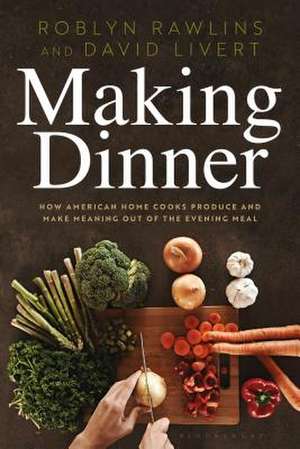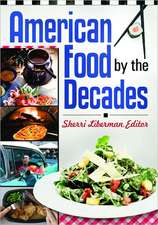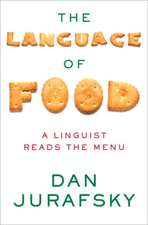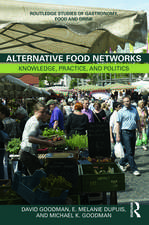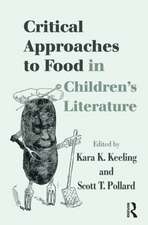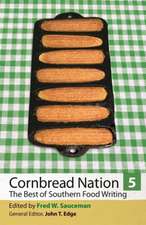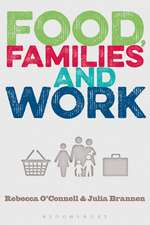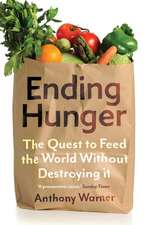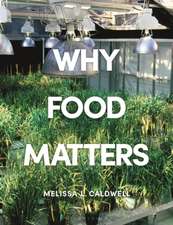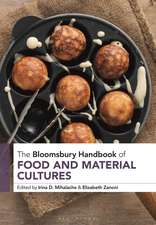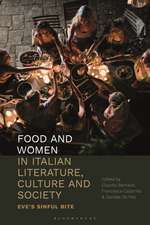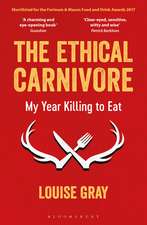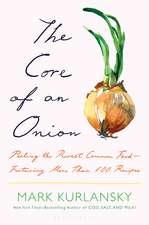Making Dinner: How American Home Cooks Produce and Make Meaning Out of the Evening Meal
Autor Dr. Roblyn Rawlins, Dr. David Liverten Limba Engleză Hardback – 9 ian 2019
| Toate formatele și edițiile | Preț | Express |
|---|---|---|
| Paperback (1) | 223.85 lei 6-8 săpt. | |
| Bloomsbury Publishing – 22 iul 2020 | 223.85 lei 6-8 săpt. | |
| Hardback (1) | 655.67 lei 6-8 săpt. | |
| Bloomsbury Publishing – 9 ian 2019 | 655.67 lei 6-8 săpt. |
Preț: 655.67 lei
Preț vechi: 942.64 lei
-30% Nou
Puncte Express: 984
Preț estimativ în valută:
125.46€ • 131.34$ • 103.81£
125.46€ • 131.34$ • 103.81£
Carte tipărită la comandă
Livrare economică 05-19 aprilie
Preluare comenzi: 021 569.72.76
Specificații
ISBN-13: 9781474252553
ISBN-10: 1474252559
Pagini: 232
Ilustrații: 1 bw illus
Dimensiuni: 156 x 234 x 13 mm
Greutate: 0.45 kg
Editura: Bloomsbury Publishing
Colecția Bloomsbury Academic
Locul publicării:London, United Kingdom
ISBN-10: 1474252559
Pagini: 232
Ilustrații: 1 bw illus
Dimensiuni: 156 x 234 x 13 mm
Greutate: 0.45 kg
Editura: Bloomsbury Publishing
Colecția Bloomsbury Academic
Locul publicării:London, United Kingdom
Caracteristici
Draws on a combination of research methods which includes in-depth interviews, cooking journals and observation of home cooks
Notă biografică
Roblyn Rawlins is Professor of Sociology at The College of New Rochelle, USA. David Livert is Associate Professor of Psychology at Pennsylvania State University, Lehigh Valley, USA.
Cuprins
List of TablesAcknowledgements1. Making Dinner, Making Meaning: Cooking, Family, and the Self2. The Basics of Making Dinner3. Hoping, Feeling and the Home Cook 4. Time and the Home Cook5. Cooking and the Self6. The Family-first Cook: "The Point of My Cooking is to Nourish My Family and Make Others Happy"7. The Traditional Cook: "Like My Mom Used to Make"8. The Keen Cook: "I Love to Try New Things"9. Making Dinner MattersAppendix A: Interview JournalAppendix B: Cooking Journal ReferencesIndex
Recenzii
The aim of the study is to identify the multiple factors that home cooks consider with regard to food preparation, including emotional, social, and resource perspectives. The authors argue that in addition to the shortage of time available to most home cooks, much of meal selection is tied to the identity of the cook and the intended goal of preparing the meal, beyond providing dinner. The authors also point out that home cooking isn't as uncommon as popularly portrayed in contemporary media, because such media tend to focus exclusively on the cooking act, ignoring the choices that cooks make surrounding meals. Summing Up: Recommended. Upper-division undergraduates through faculty. Students in two-year technical programs.
This topic is relevant and understudied, and the authors address it here with an accessible writing style.
Very little has been written about what people actually do with food rather than the discourses and myths that surround 'cooking' or the 'family meal'. This book overcomes this with empirical research on 'home cooking' combined with academic analysis and with reference to the relevant literature. A very well written and convincing book.
Adding to the unduly sparse literature on meals, this book valuably presents further evidence that eating out is not eclipsing eating at home and that cooking skills are not being lost, simply changing.
This topic is relevant and understudied, and the authors address it here with an accessible writing style.
Very little has been written about what people actually do with food rather than the discourses and myths that surround 'cooking' or the 'family meal'. This book overcomes this with empirical research on 'home cooking' combined with academic analysis and with reference to the relevant literature. A very well written and convincing book.
Adding to the unduly sparse literature on meals, this book valuably presents further evidence that eating out is not eclipsing eating at home and that cooking skills are not being lost, simply changing.
